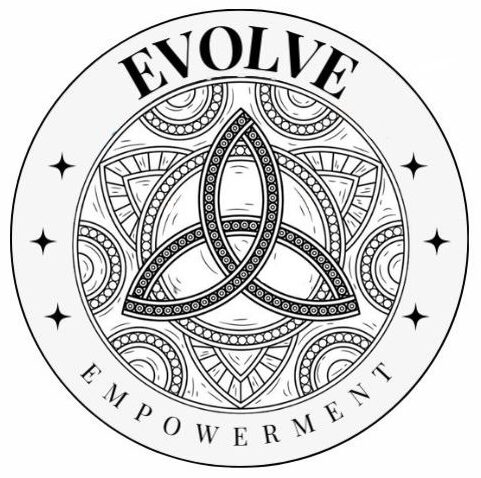The Thread That Binds Us
Some mornings, it’s not coffee that wakes you, but the haunting sense of why.
Not why you’re awake, but why you’re here. The scent of purpose—or its absence—can either fuel your day or drain it before it starts. And for all our advances in technology and convenience, this ancient question has only grown louder in our modern lives.
But what if this “why” was more than just a philosophical itch? What if science—cold, empirical science—has begun to measure its pulse, and what it found was astonishing?
This article unravels the tangled thread of purpose and well-being, not just as a lofty idea but as a biological, psychological, and spiritual anchor.
Let’s trace the footprints of meaning and see where they lead.
Purpose and Well-Being: A Link Older Than Psychology
Before psychology found its footing in the labs and lecture halls, humans knew—instinctively—that a life without meaning wilts.

Ancient texts, from the Bhagavad Gita to Marcus Aurelius’ Meditations, whisper of duty, destiny, and the soul’s deep yearning. Yet, it wasn’t until Viktor Frankl’s searing experience in concentration camps that modern science began to take this longing seriously.
Frankl’s Man’s Search for Meaning cracked open a door: purpose wasn’t luxury—it was survival. Today, that door stands wide open.
Researchers like Ryff (1989) and Steger (2009) have drawn thick lines between a strong sense of purpose and overall well-being, linking meaning to better sleep, emotional resilience, and even longer life spans.
In recent years, longitudinal studies—like the MIDUS project—have confirmed what the ancients intuited: people with a clear sense of purpose are less prone to depression, anxiety, and cognitive decline.
Purpose appears not just in poetic verses but in MRI scans, cortisol levels, and the stories of those who’ve turned their chaos into clarity.
One such story: a woman diagnosed with cancer who, instead of spiraling, founded a charity for young patients. Her health? Statistically defiant. Her glow? Unmistakably human.

Purpose in the Body: Biology Meets Meaning
We think of purpose as abstract, but it’s surprisingly chemical.
Neuroscience tells us that when individuals engage in purposeful activities—be it caregiving, creative work, or activism—their brains activate regions tied to motivation and reward.
Dopamine flows. The prefrontal cortex lights up. It’s not just metaphorical fire—it’s literal ignition.
Meanwhile, stress, the great silent killer, is tempered by meaning. Purpose acts like a buffer, reducing the levels of cortisol and inflammatory markers.
A study from the University of Michigan showed that older adults with higher life purpose had lower risks of stroke and heart disease.
Even the gut, that shadowy second brain, joins the dialogue. Microbiome diversity—a marker of good health—is influenced by mental state.
And when one lives aligned with a sense of purpose, gut health often reflects it. Coincidence? The emerging field of psychobiotics suggests otherwise.
If you want to deepen your knowledge on similar topics, you can read this article.
Crafting a Life of Meaning: The How Without the Hype
So how do we find purpose without sounding like a Hallmark card?
The truth is: it’s messy. Rarely a lightning strike. More often, a quiet ember noticed after years of sleepwalking. Begin by watching what moves you—not what’s trendy, but what haunts you in silence. That’s where purpose often whispers.
Mindfulness helps. Journaling. Long, uncomfortable silences in nature. Ask: what do I care about enough to suffer for?
Communities—like those found on platforms such as Wealthy Affiliate or purpose-driven programs like Purpose Alchemy—can catalyze this search. It’s easier to hear your voice when you’re not shouting over others’. These spaces offer structure, feedback, and yes, accountability.
And then there’s the daily rhythm: fold purpose into your morning rituals, your to-do lists, even your meals. Living purposefully isn’t about grand gestures—it’s about tiny, relentless alignments.

Purpose as a Compass: How to Know It’s Working
When purpose is present, metrics shift. Not just your blood pressure, but your patience. Your ability to say no. Your appetite for distraction wanes.
You begin to notice the quiet joys again: the scent of a book, the stretch of the spine after hours of work that mattered.
Researchers track improvements in life satisfaction, optimism, and social connection. Individuals who score high in “purpose” indexes tend to have lower absenteeism at work and report stronger relationships. It’s not magic—it’s mathematics. A meaningful life equals a better one.
Stories abound: a man who left corporate chaos to become a youth mentor; a mother who turned grief into advocacy for suicide prevention. Their transformations are not anomalies—they’re data points on the map of purpose.
And where is all this heading? The next wave of research focuses on gene expression—how purpose may even impact the way DNA behaves. It’s not exaggeration; it’s epigenetics. Purpose might be the switch that turns off inherited pain.
The Longing That Heals
We are not just creatures that seek pleasure—we are beings that seek meaning. In this lies both our curse and our cure.
To live without purpose is to drift. But to live with it—even imperfectly—is to anchor oneself to something larger, steadier, truer. If you’ve ever felt like something’s missing, you’re not broken. You’re listening. And that’s the first sign of life.
So begin—clumsily, earnestly. And if you’re looking for a path, there are tools to help: from communities like Wealthy Affiliate to guided life purpose programs like Purpose Alchemy or even more spiritually inclined approaches through this holistic reset.
Start where you are. But whatever you do, don’t wait forever.
FAQ:
What is the definition of life purpose in psychology?
Life purpose in psychology refers to a stable and overarching sense of meaning that guides your actions, decisions, and goals. It’s the inner compass that gives life coherence and direction.
Can having a purpose really improve physical health?
Yes. Studies have linked purpose with lower risk of chronic diseases, improved cardiovascular health, and even reduced mortality rates. Purpose affects hormone levels, immune response, and even gut health.
How do I start finding my purpose?
Start by exploring what excites and disturbs you. Journal your thoughts, practice mindfulness, and engage with communities that support intentional living. Purpose often emerges through reflection, service, and connection.
Is there a difference between goals and purpose?
Absolutely. Goals are specific, measurable outcomes. Purpose is the enduring reason behind why you pursue those goals. Purpose fuels your motivation, even when goals shift or fail.
Are there programs or tools to help find purpose?
Yes. Platforms like Wealthy Affiliate, Purpose Alchemy, and this spiritual guide offer structured guidance, resources, and support networks.
Bibliography:
- Ryff, C.D. (1989). Happiness is everything, or is it? Explorations on the meaning of psychological well-being.
- Frankl, V. (1946). Man’s Search for Meaning.
- Steger, M.F. (2009). Meaning in life. In Snyder, C. R., & Lopez, S. J. (Eds.), Oxford Handbook of Positive Psychology.
- Boyle, P. A., et al. (2009). Purpose in Life Is Associated With Mortality Among Community-Dwelling Older Persons.
Disclosure: This article may contain affiliate links. If you click on these links and make a purchase, I may earn a commission at no extra cost to you.

